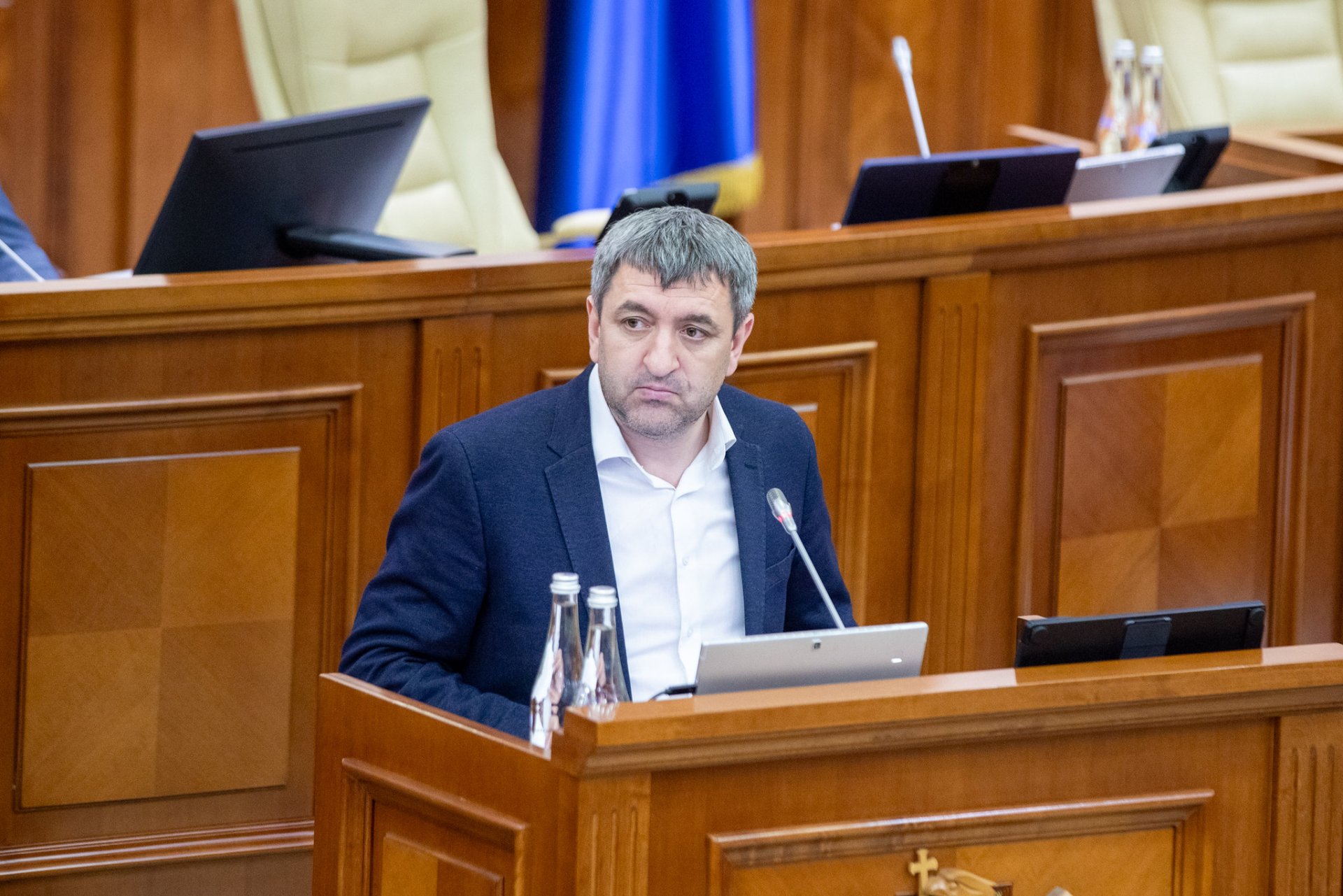
Patriot center to be directly subordinated to Moldova's president
The Center for Strategic Communication and Countering Disinformation will be placed under the direct subordination of Moldova’s president. Fifty-six MPs today voted a draft law providing for this change, in the first reading. The document was harshly criticized by the parliamentary opposition, which demanded the dissolution of the center.
The document was presented in the parliament’s plenum by a law maker of the Action and Solidarity Party (PAS), Lilian Carp. He said that the current Center for Strategic Communication and Combating Disinformation would be renamed into the Center for Strategic Communication and Countering Disinformation and would focus its efforts on countering disinformation through prevention and public education, with the aim of reducing the impact of disinformation and preventing its emergence.
According to Carp, this change aims to enhance efficiency in coordinating public policies related to information security and combating disinformation, as well as better alignment between domestic and foreign policy, in accordance with the constitutional powers of the Moldovan president.
The MP also said that, following the legislative changes, the director of the Center would be appointed and dismissed directly by the head of state, without the involvement of Parliament, as the current legislation requires. At the same time, the document proposes establishing a new format for the Advisory Council of the Center for Strategic Communication and Countering Disinformation. Thus, the decisions of the Council will have a recommendatory nature.
Members of the council can be public dignitaries, representatives of the academic community, notable professionals, representatives of strategic and development partners, specialists or experts with notable activity in the field of public communication, security and defense, public administration and international relations. The quality of membership in the Council will be voluntary. The Council will offer proposals for improving the work of the Center and provide support in areas of competence.
The drafts also adjusts certain terms, such as “strategic communication,” “information manipulation actions,” and “foreign interference,” in accordance with definitions used in the European space. New definitions will also be included for such terms as “sensitive security information” and “societal resilience.”
Another provision aims to extend the term of the Strategic Communication Concept till December 31, 2030, in order to strengthen the national strategic framework and ensure institutional efficiency in the field of strategic communication and combating disinformation. The concept was approved for the period 2024-2028 and represents a public policy tool coming from the National Security Strategy, approved for the period 2024-2030.
For the draft to come into force, it must be voted on in the second reading too.
Circulation of narcotic substances to be regulated by a new law in Moldova
Moldova to have National Atlas
Moldovan parliament speaker asks Superior Council of Magistracy to investigate potential delays in case of Bolduresti mayor
Moldova to join Global Platform for Access to Childhood Cancer Medicines
Moldova's cybersecurity to be strengthened with EU's support
Moldovan PM says Soviet deportations brought suffering, but did not take away people's dignity
Superior Council of Prosecutors announces competition for position of Moldova's Prosecutor General
Stalinist Deportations in Bessarabia // Moldovan historian says those who cared most about language, history were deported to Siberia, Kazakhstan
Unusual seizure at Chisinau Airport: crocodile skins found in passenger's luggage
Moldova to establish territorial registers for intangible cultural heritage
Liaison prosecutor of Moldova to Eurojust to be selected based on competition organized by Superior Council of Prosecutors
Moldovan Prime Minister in dialogue with Austrian counterpart
ANRE to set up uniform gas distribution tariffs throughout country
Parliament approved reorganization of central administration
Freestyle wrestler Irina Terzi becomes European Vice-Champion
More schools in Moldovan capital receive new computers
Future technologies to be studied in south Moldova; new vocational college to soon start working in Comrat
President: EU integration only guarantee for Moldova’s security and economic development
Moldovan authorities urge citizens to avoid any travel to Israel
PHOTO GALLERY // Blood Donors - Community Heroes
Moldova strengthens European path: Discussions in Brussels with Lithuanian officials
European safety standards for passenger ships to be implemented in Moldova
World Blood Donor Day // Speaker calls for solidarity
Sixteen more judges passed external evaluation
Ethnographer Varvara Buzilă winner of Europa Nostra Awards 2025


